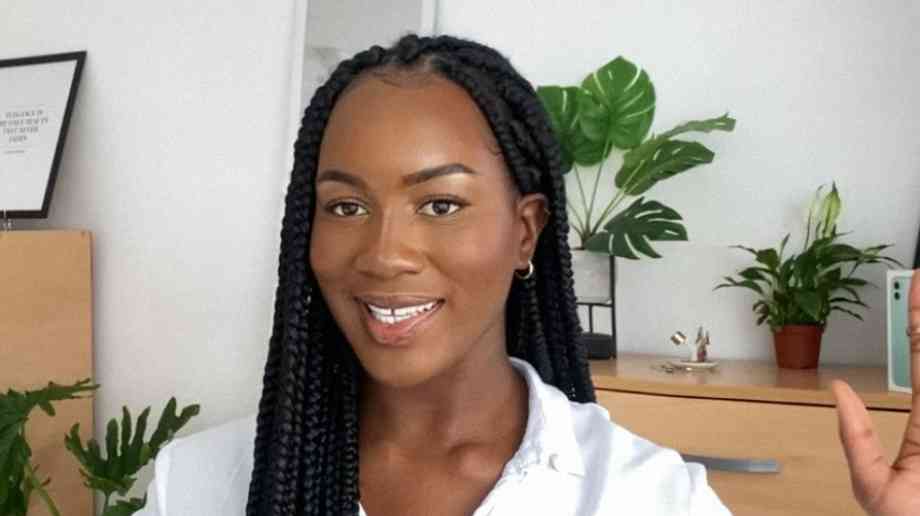
Inspiring a new generation of female engineers
Civil engineer and Youtuber Virtue Igbokwuwe is determined to challenge stereotypes in engineering. She shares her experience and gives her views on how schools can engage girls in engineering
I am a graduate civil engineer working in the highways sector. I am involved in upgrading road networks, bridges and footways. Why the introduction? As a female engineer, I am passionate about encouraging many more girls to pursue a career in my field. And that’s where I believe schools can help.
It’s important that girls can see representation when considering a career in STEM. They must also be able to identify with ambassadors attracting the next generation into our field. The statistics paint a harsh reality. According to EngineeringUK, women make up just 16.5 per cent of those working in engineering jobs and only 11 per cent are from minority ethnic groups. That clearly must change.
I recently took part in Tomorrow’s Engineers Week, an annual event organised by EngineeringUK. It’s a week-long celebration of engineering and technology careers designed to excite and inspire the next generation.
Secondary students across the UK have an opportunity to discover the wonders of modern engineering and explore global and local career pathways. This year, they also got a chance to find out about sustainability as well as the role of creativity and arts in engineering.
I agreed to take part as I am determined to challenge the stereotype that engineering consists of men in hard hats. I must admit, I too was inspired by the breadth of roles held by fellow members of the engineering and technology community. The week opened with a live broadcast watched by thousands of students across the UK. One of my fellow panellists was a monitor engineer for the band, Florence + The Machine. Not many young people would E
F equate a job in music with engineering. But that’s why events such as Tomorrow’s Engineers Week are so vitally important.
How it began
My route into engineering began at school. I loved product design. I also loved science, especially physics. In fact, it was my physics teacher who introduced me to the world of civil engineering. I studied maths, physics and product design at A-level and secured my place at the University of Southampton to study MEng civil engineering.
Before Freshers Week, I remember desperately searching ‘civil engineering student’ on Google and YouTube with the hope of finding someone like me studying the course or in the industry. The content was scarce. But to my surprise, my cohort split was 60:40, men to women – something we should all shout about. So, I decided to take matters into my own hands and start a YouTube channel, The Virtuous Life.
When I began filming videos, I had two things in mind. The first was representation: showing a young black woman in the field; hoping to inspire people. The second was to change narratives: showing the world that civil engineering is no longer a male-dominated field. I began documenting life as a civil engineering student, including my lectures, labs, site visits and my summer placements as a contractor. The channel now has more than 5,500 subscribers.
Today, I provide cities across the country with safe, accessible roads and crossing points. I am improving the road network in the hope of helping to ease congestion, enabling better engagement and interaction of all road users: from vehicles to pedestrians.
I create a safer and cleaner lifestyle by providing cycle lanes and improving the network by connecting existing lanes to a new cycle path.
It’s a fast-paced, exciting career that you’ll never get bored of. I’ve seen first-hand just how resilient the industry is, adapting to the world’s needs. As engineers, we also get the chance to work on large-scale projects that can have a real impact on people’s daily lives.
School involvement
How can schools help engage girls in engineering? Well, for a start, they can encourage students to take part in initiatives such as Tomorrow’s Engineers Week or The Big Bang. Allowing students to explore the world of engineering from their school desk is a great first step. But they can go further. Consider inviting speakers to your school to talk about their career journeys, allowing young people to ask questions directly. I loved seeing the hundreds of inspiring questions that young people had sent through to the panel before the Tomorrow’s Engineering Week broadcast. Students wanted to know how engineers are working to stop climate change. And thinking ahead, they also asked about the main skills needed in the next decade.
Schools can use resources that showcase girls in lots of different roles, not just the most obvious ones. I’d also suggest trying to find creative ways to explore STEM careers. Why not invite parents in to talk about their careers? And think about creating your own school videos that highlight roles with inspirational speakers.
For more information about Tomorrow’s Engineers Week visit www.teweek.org.uk where you can download free curriculum-based resources and watch a replay of the live panel which kicked off the five-day event.
Further Information:
Latest News
26/09/2025 - 11:08
Three schools have been fitted with solar panels over the summer as part of a government-funded scheme, with eight more schools set to get their solar panels this autumn.
25/09/2025 - 09:51
Charity Speech and Language UK has published its whitepaper in lieu of the delays to the government’s own Schools White Paper – delays which are damaging children’s education, mental health and future.
25/09/2025 - 09:34
The scheme will see high-achieving young people from disadvantaged areas receive letters from students at Kings College London, encouraging them to consider a university education.
24/09/2025 - 10:22
A coalition of over 60 leading organisations from the UK’s creative and digital industries, alongside education experts, are calling on the government to introduce a new Digital Creativity GCSE.
24/09/2025 - 09:59
The Government’s Youth Hub programme – which are hosted by sports clubs and other community venues, will almost double in number thanks to £25 million new investment.







